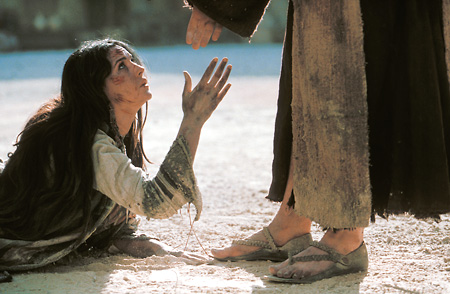There is a natural desire in parents to provide a better life for their children. Indeed, the Apostle tells us that parents ought to lay up for their children (2 Cor 12:14).
This is true not only in the material sense, but also in the moral and spiritual — the spiritual in fact being the primary application of St. Paul’s words, which should ring in our ears as we consider the case of Adriana Iliescu.
News outlets reported last week that the 66-year-old Romanian woman became the world’s oldest to give birth. There were all kinds of oddities about the story, besides the most obvious. She was said to have been “artificially inseminated” after undergoing nine years of fertility treatment to “reverse the effects of menopause.” But it was also reported that she received “eggs and sperm from healthy young donors.” I might need a refresher course on the birds and the bees, but if she received “eggs and sperm” then this was an in vitro fertilization (not “artificial insemination”) and what she got were embryos.
Right. “Embryos” plural, because according to her doctor, Iliescu “initially was carrying triplets but lost the third fetus after nine to 10 weeks.” A second infant died in the womb at 24 weeks, prompting an emergency C-section to save her “twin” — but then again with all those eggs and sperm mixed up from the “healthy young donors” the “twins” might not have been related at all, you understand.
But if you think the biology in this story was mixed up, wait until you examine the theology:
Mrs. Iliescu, who grew up under atheistic communism, “discovered religion” later in life and is now Romanian Orthodox. She views her new daughter as a gift from God and a reward of her faith. Her spiritual leader did not attempt to disabuse her of the idea. The press office of Patriarch Bogdan Teleanu, head of the Romanian Orthodox Church, stated that “the Bible preaches love and procreation at whatever age.”
(Considering that “love” had nothing to do with this I am unclear as to whether its inclusion in the equation is a biological or a theological confusion.)
However, a member of the Orthodox Church’s bioethics committee, Bishop Ciprian Campineanul, pointed out that the church was against in vitro fertilization “in principle” regardless of the woman’s age. He called the action selfish and shocking.
Less shocking, indeed almost predictable, was the revelation that Mrs. Iliescu, divorced, had had two abortions during her brief marriage while she was in her twenties. She had believed, she said, “the party line that a fetus is only considered a life when it is older than three months.” When it finally sunk in that abortion was murder, she deeply regretted it.
Poor Mrs. Iliescu has now lost four babies, two by abortion and two more during her pregnancy. Her drive to give birth as a function of her grief from abortion is understandable. But no such tangled web of guilty emotions drove the doctors who assented to her bizarre plan.
The Bible preaches procreation, yes, “Be fruitful and multiply,” but this Romanian case is not procreation. It is an abuse of science and an abuse of a child. If we view with horror the beggar parents who blinded the eyes or amputated the limbs of their own children to make them more sympathetic, we cannot possibly look upon this sad case without reflecting on the harm done to the child. This child was created intentionally to serve, not as an end in herself, but as a means of fulfillment of an old lady’s dreams. This child has no father, no grandparents. She has been cut off from the continuum of life that flows through families and generations.
Was God calling Mrs. Iliescu to be a mother? Yes, from the moment she first married. Was God calling her to repent and make reparation for the abortions? Yes. And in a country where so many children languish in orphanages, Mrs. Iliescu’s opportunities to mother children could not have been greater.
Instead of answering God’s call, Mrs. Iliescu, with the connivance of some doctors of deplorable ethics, has destroyed two more babies, and doomed another to struggle with prematurity. She has made one more little rip in the fabric of morality and decency and taken another step to divorce childbearing from the family structure that nurtures children. She has made the world worse for her child — for all of us. Her child is not a gift from God to her, but something stolen. But this child may be a gift to the rest of us if she serves as a warning.
Already a law has been drafted in Romania to ban fertility treatment for women who are above the normal reproductive age. Hopefully it will pass in their parliament and be enacted. Other countries should follow suit — sooner rather than later.
[Originally published 2005 © Mary Kochan]




